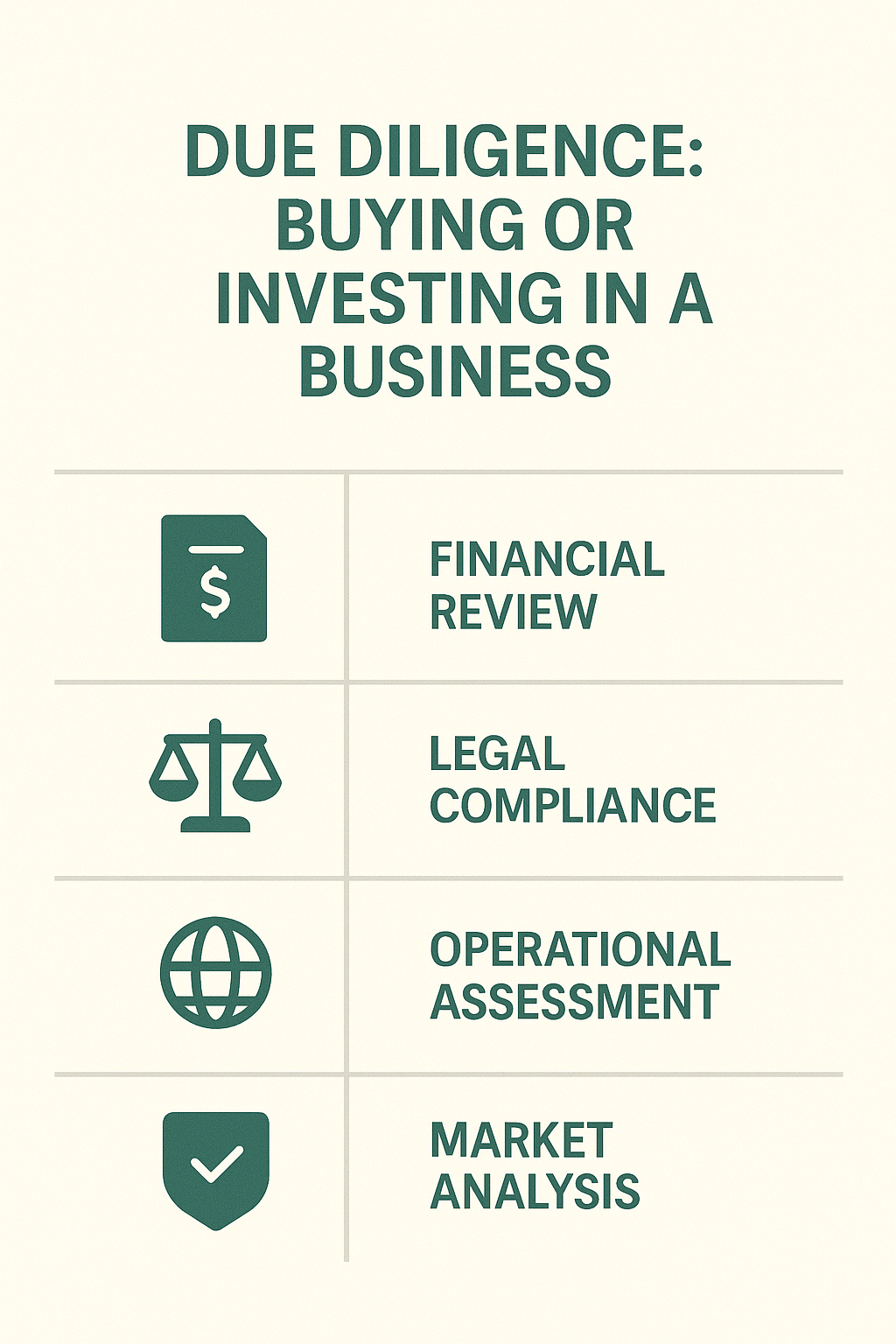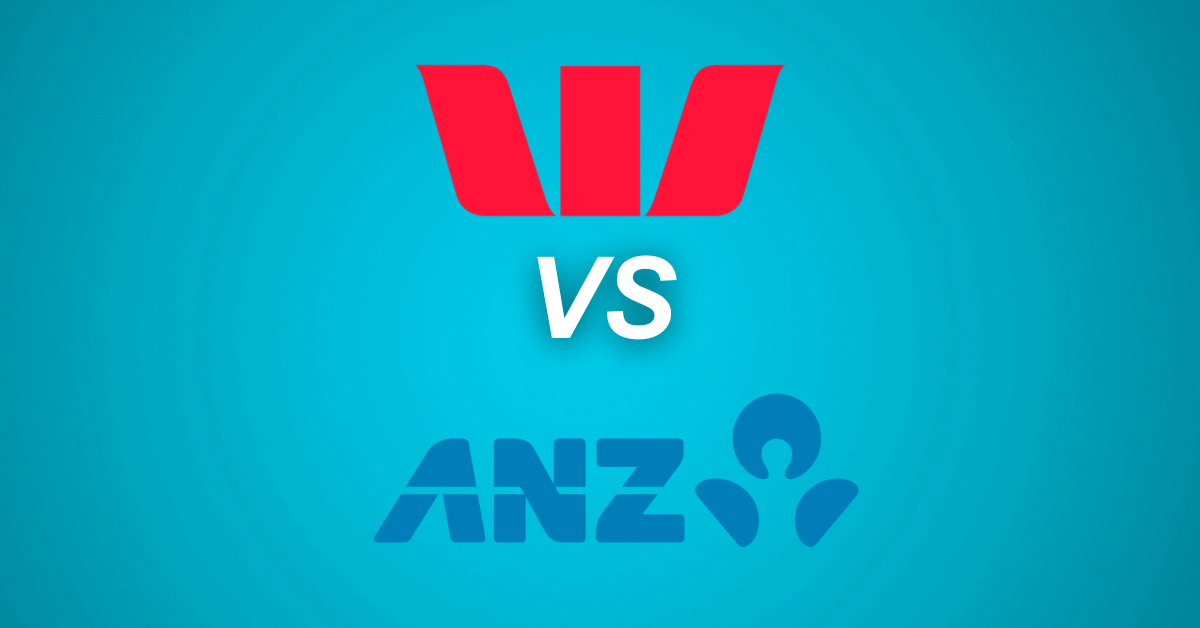I’ve been fortunate to have had a great career, both supporting clients in buying businesses and starting/buying businesses for myself.
Over time, you develop some pretty good mental shortcuts, but no matter what you’ve experienced in the past, NEVER SKIP Due Diligence when buying, creating a business partnership, or even starting a business.
It may be tedious at times, and the seller may even get frustrated with some of the requests, but it is critical to clearly understand what you are walking into to protect your capital.
In this article, I will focus primarily on the due diligence steps in a purchase scenario, but many of these can be applied to other business scenarios, such as partnerships and start-ups.
Here’s a breakdown of the due diligence process and how you can navigate it effectively.

Understand the Purpose of Due Diligence
Firstly, due diligence (DD) aims to verify what a seller or a broker is telling you and uncover any hidden risks or liabilities associated with a business. There are two types of DD:
The Initial DD is where we identify enough information to be comfortable making an offer.
This may include talking to the owner and getting a verbal understanding of the business, staffing structures, clients, etc, reviewing recent financials, reviewing websites and reviews, speaking with key staff members such as a General Manager critical to business operations, etc.
Once you’ve made and accepted your offer, it is time for Deep DD.
This involves a deep dive into the business’s financials, accounts payable/receivables ledgers, customer databases and contracts, supplier agreements, lease agreements, staff contracts and structures, reviewing internal documents such as operations and compliance manuals, and obtaining evidence of licenses or other critical factors to ensure operations can easily continue.
The purpose is to verify the information provided by the business owner, assess its legal and financial standing, and evaluate potential risks that may affect your investment.
It helps ensure you make an informed decision, avoid potential pitfalls, and ensure the business aligns with your goals.
The Categories of Due Diligence
Due diligence can be divided into several key categories:
Financial Due Diligence
This involves analysing the business’s financials. You will assess the profit and loss statements, balance sheets, tax returns, profit margins, cash flow, aged payables/receivables reports, work in progress reports (WIP), financial forecasts, including the assumptions made, and debt obligations.
You do not simply assess the current financials—we recommend reviewing at least three years, where available, to get a clear understanding of historical fluctuations, which will help you craft the next round of questions for the owner.
It also helps you see whether a business is trending upwards or downwards overall.
Legal Due Diligence
During legal due diligence, you will examine all the legal aspects of the business. This includes checking for any ongoing or potential lawsuits, intellectual property/patents, employment contracts, supplier agreements, lease agreements, and compliance with relevant laws and regulations.
We highly recommend outsourcing this to your legal professional. They will have a broad understanding of potential risks and can spot them quickly.
Operational Due Diligence
This involves reviewing the business’s operational processes and systems to identify inefficiencies or gaps that could affect profitability or scalability.
Here, we advise assessing the company supply chain, customer base, including client retention and return rates, product or service quality, management team, and how well all processes are documented and automated.
If an owner cannot quickly provide an overview of their processes and key systems, it’s an indicator that they may not have strong ones in place or a good records system.
Furthermore, imagine the handover post settlement where your first job will be to extract how to run a business from the previous owner’s head while they’re already planning their vacation.
Systems and processes + a good business = highly saleable and easy to hand over.
Market and Competitive Due Diligence
This focuses on understanding the business’s position in the market. Who are the competitors? What market share do they have vs the company in question? What do they do better or worse? What are the trends in the industry?
Is the business likely to grow or face significant challenges?
If you are unfamiliar with the industry you are buying in, consult a mentor, an industry expert, or one of your professional advisors for guidance on the risks.
What may look like a great opportunity could be a looming disaster if you don’t ask the right questions. We believe that all businesses can be successful, but you need to understand what you’re dealing with first.
Cultural Due Diligence
This is often overlooked, but it is critically important to understand the company culture, values, and employee satisfaction.
You should assess whether the employees are motivated and aligned with the company’s goals, and if you feel they will align with your vision.
This is also necessary as you do not want to settle on a business, only to lose half your key employees.
Identifying Risks and Opportunities
Due diligence is about uncovering both risks and opportunities.
While uncovering potential risks (such as pending legal disputes or questionable financial practices) is crucial to protect your investment, due diligence should also reveal opportunities to be leveraged for growth.
Look for gaps in the market, customer pain points, process inefficiencies, opportunities to improve team morale, and innovations that will improve your competitiveness.
Involve Your Professional Advisors IMMEDIATELY
While conducting due diligence is essential, consulting professionals who have done this for a broad range of clients across different industries are critical.
They have likely seen things go very wrong and right–enjoy the benefits of their experiences. Legal professionals, accountants, financial professionals, mentors, and industry specialists can provide insights you may not have access to otherwise.
Their experience can help you identify critical issues and interpret complex data. Many first-time business buyers make the mistake of avoiding professionals because they want to save costs, but spending a few thousand dollars on the right advice is much more advisable than losing your life savings and risking legal action.
Even billionaires and experienced business operators have a team of advisors who understand their objectives and have a clear process for verifying that a business aligns with their goals.
Negotiating or Re-Negotiating the Terms – The Final Decisions
Once the due diligence and renegotiations are complete, you may proceed with the deal, but with certain conditions or adjustments to the original high-level agreement.
This is where negotiation comes in. DO NOT be afraid to put forward what is reasonable to you. A critical mistake people make is not knowing how to tackle the conversation, so they avoid it altogether, costing them more post-settlement.
You can use your findings to negotiate terms that protect you, such as adjusting the purchase price, renegotiating contracts with key employees, suppliers, and customers, and negotiating KPI’s to the sale, such as part settlement upfront and the remainder after 12 months, provided the business continues to perform.
You may also negotiate an unpaid handover period with the existing owner, or a condition may be that the key general manager gets a small shareholding and agrees to stay on for 5+ years.
When it comes to business, most things are negotiable and custom. Again, rely on your advisors to help you structurally reasonable. If all is agreeable, your lawyers will prepare the final legal agreements, and settlement planning can begin.
If you can’t reach an agreement or are uncomfortable with what DD revealed, never forget that it is ok to walk away. There are plenty of deals to be done.
Conclusion
The due diligence process is essential to making an informed decision when it comes to settling on a business. By carefully investigating financials, legal standing, operations, market position, and cultural fit, you can mitigate risks and ensure you set yourself up for success. If you aren’t satisfied, walk away. If you are, prepare for a rewarding and exciting addition to your wealth journey.




